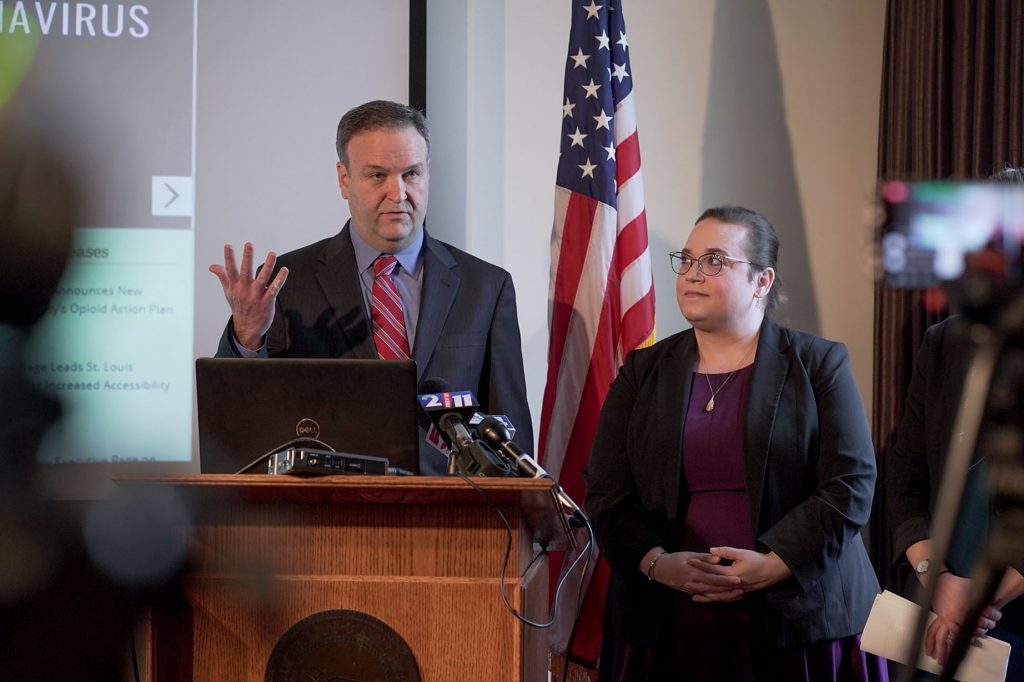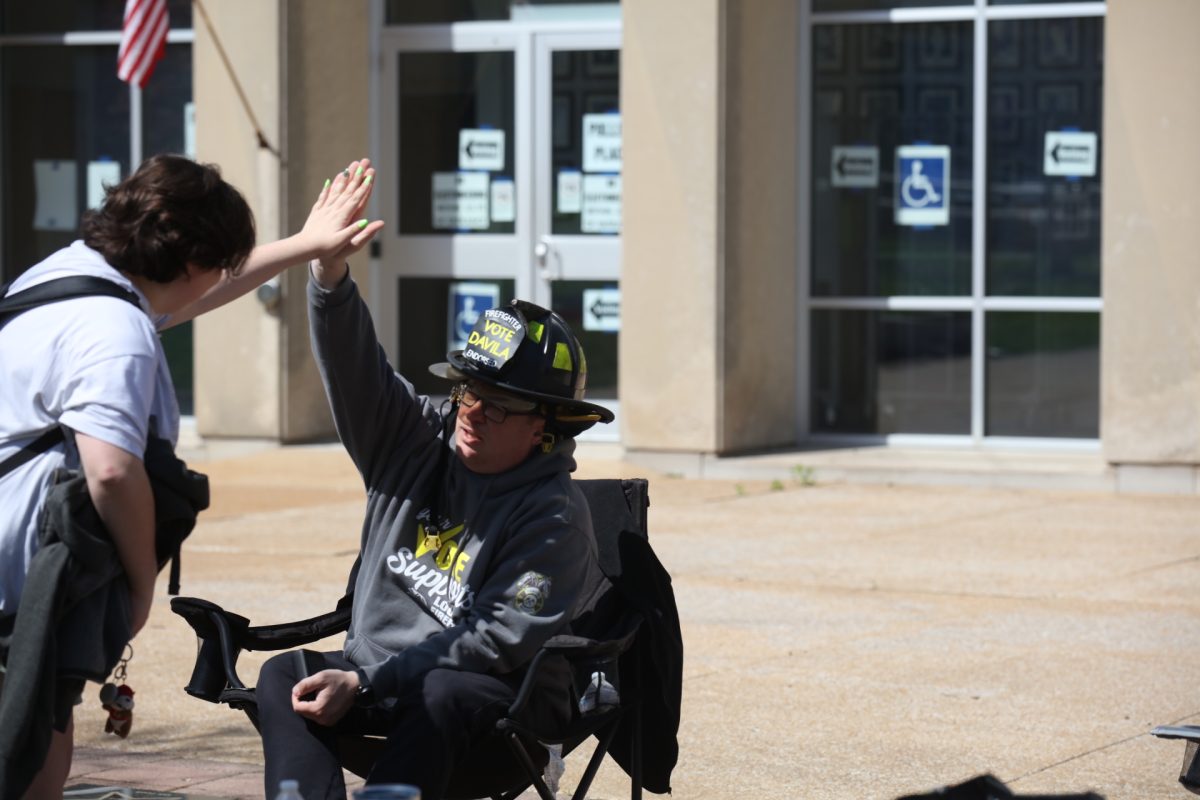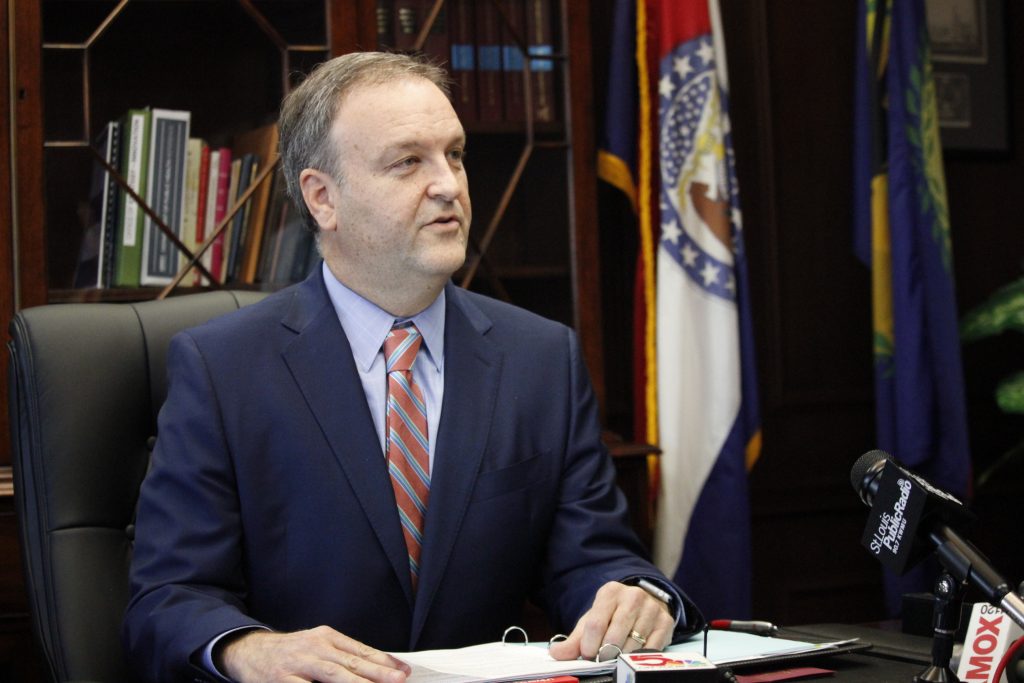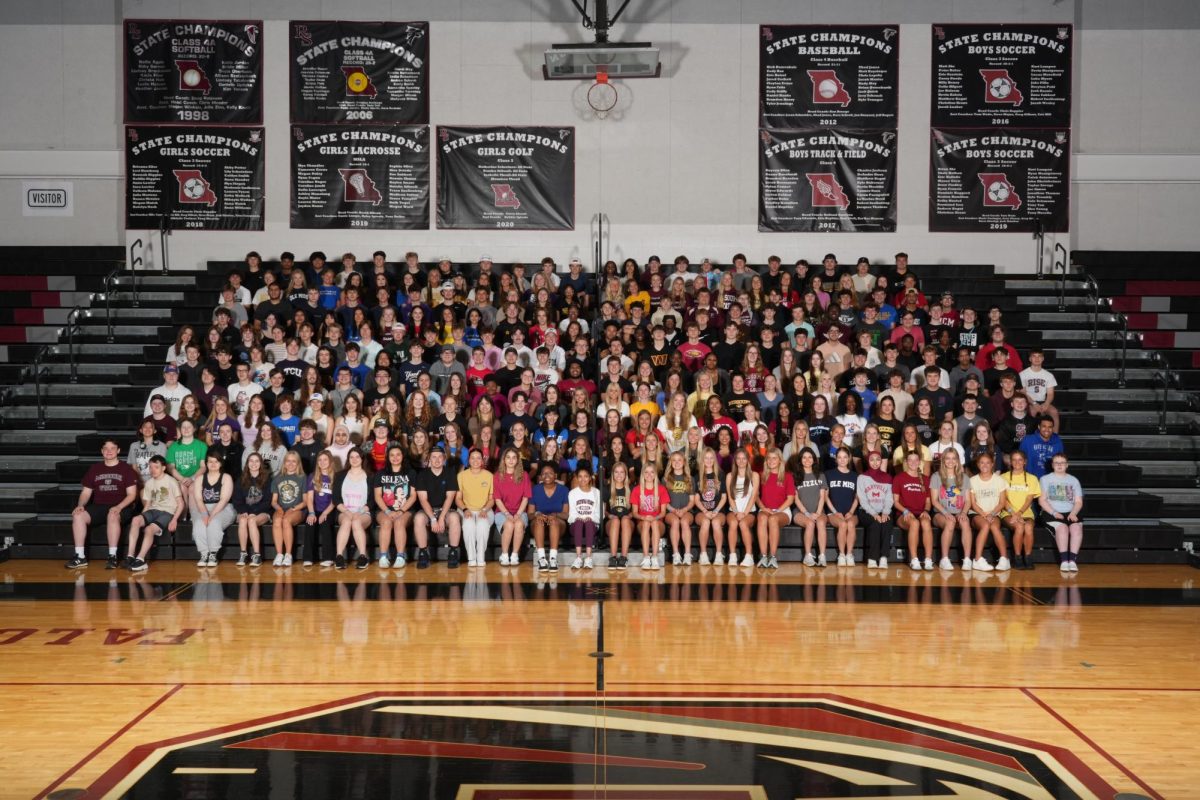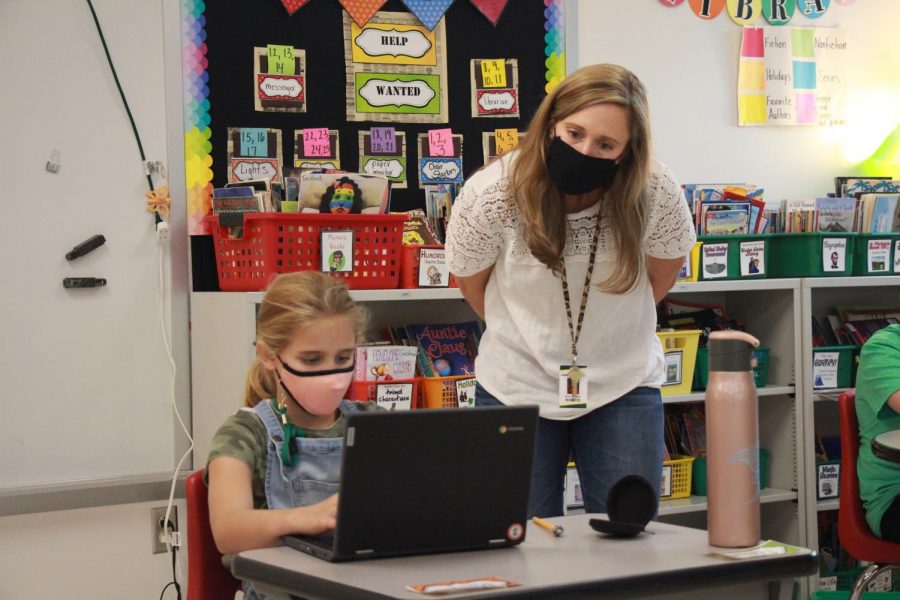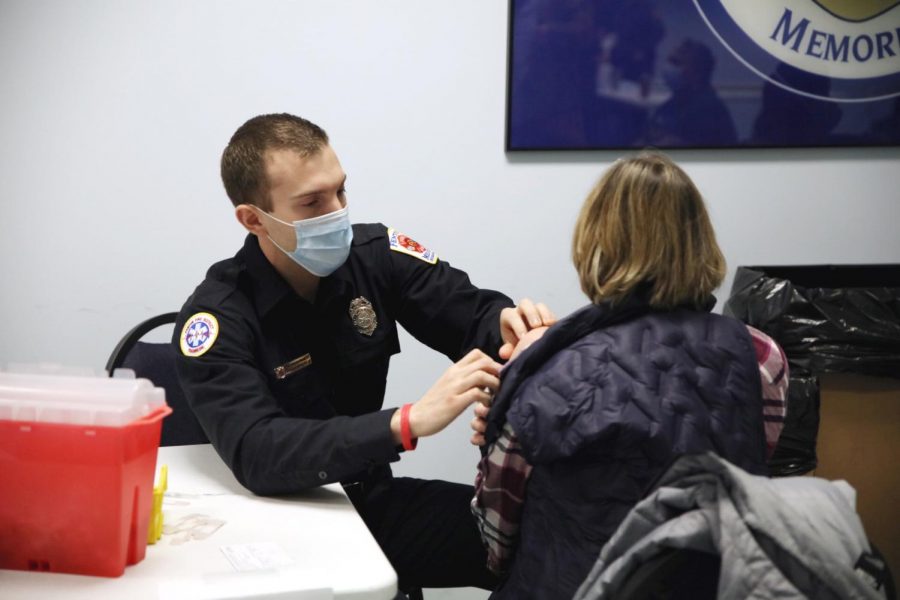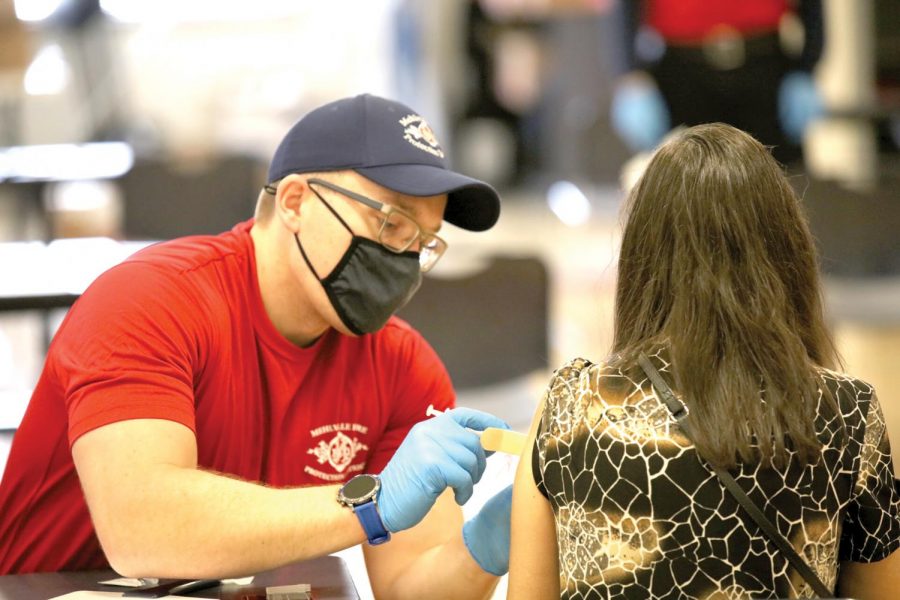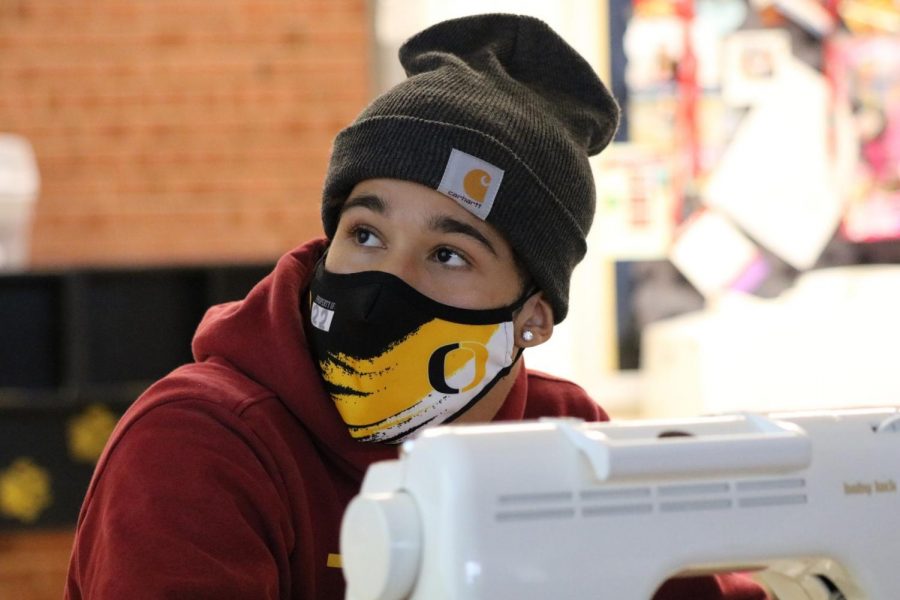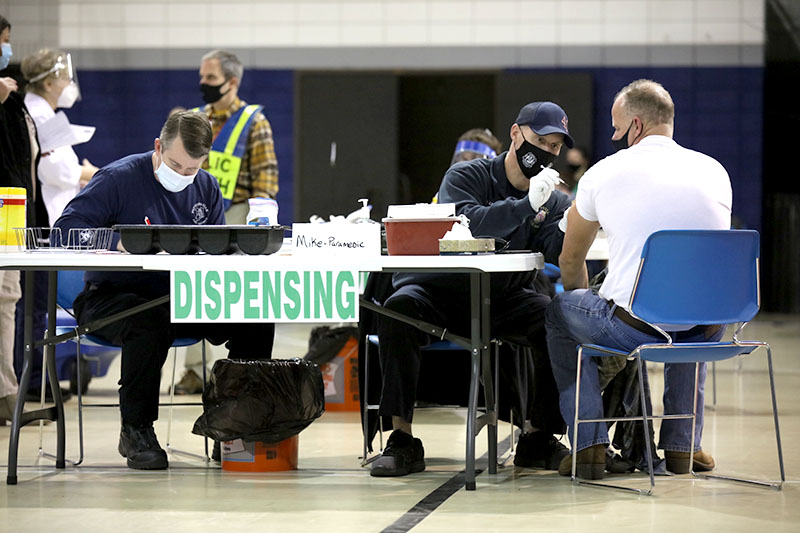St. Louis County joined states like Illinois, California and New York with a stay-at-home order to fight the coronavirus, under a decree issued by County Executive Sam Page that went into effect at 12:01 a.m. Monday.
Under the executive order issued Saturday, similar to the orders referred to in various places as a lockdown or a shelter-in-place order, residents of St. Louis County are only allowed to leave the house for essential jobs or services, a list that includes health care for people or pets, gas stations, pharmacies, grocery stores, exercise in parks or streets, construction and infrastructure, essential government functions and takeout at restaurants. The full list can be found at www.callnewspapers.com.
The city of St. Louis issued a similar order through Mayor Lyda Krewson, with other areas in the St. Louis region including St. Charles, Jefferson and Franklin counties possibly following, Page said.
“Staying at home is inconvenient, but it’s necessary,” the county executive said. “I know that these restrictions will take a toll on our economy. We are choosing saving lives over the economic impact. The economy will bounce back and we will too, and we will be stronger. You must stay at home.”
In issuing the mandate, Page referenced the decision Friday issued by Illinois Gov. J.B. Pritzker, which went into effect at 5 p.m. Saturday.
“Like Gov. Pritzker said, this was not a decision that was made lightly,” Page said. “We must choose between saving lives and saving our livelihoods.”
Stores or businesses that stay open in defiance of the order and people who go out of their houses will face a misdemeanor and a fine, Page said, but he hopes it doesn’t come to that and everyone cooperates voluntarily.
“You will still be able to go to the grocery store, go to the pharmacy or collect anything you need to run your household,” he said.
Activities that will be allowed under the stay-at-home order include outdoor activities like biking or walking as long as people maintain “social distancing” measures of keeping 6 feet from each other; transferring physical custody of a child; caring for family members; operating or visiting “essential” businesses including grocery stores and stores that sell cleaning products, convenience stores, gas stations, pet supply and products essential to running a household; farms or cultivating food; food production or manufacturing; businesses that provide social services to economically disadvantaged people; media outlets, including newspapers, television and radio stations, whether private or public; auto repair and related facilities; banks, financial institutions and businesses that provide payroll for any business; trash collection and disposal; hardware stores; hotels and motels; plumbers, electricians, exterminators and other providers that provide for the safety or communications of a household.
Other essential businesses include mailing and shipping services; public and private schools providing distance learning; private security; laundromats and dry cleaners; funeral homes, mortuaries and cemeteries; churches, but they must practice social distancing and limit crowd sizes to 10 or less; suppliers of products needed for people to work from home; janitorial and other services offered to essential businesses; businesses that ship or deliver groceries.
The list also covers nonprofit organizations providing support to those impacted by the coronavirus; manufacturers of products like hand sanitizer or masks; transportation services like airlines and limos if they’re providing essential services; public transportation; home-based care for seniors or children; residential shelters like those for domestic violence victims; defense and national security; adoption agencies; labor unions; legal or accounting services for essential services; child care; essential infrastructure like utilities.



